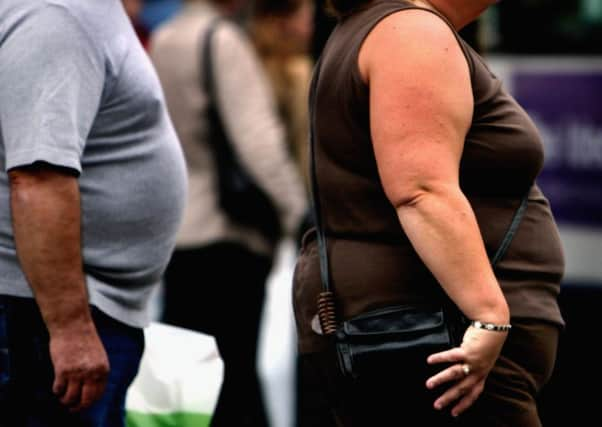Obesity on the rise in most deprived areas, study reveals


A study published today by NHS Health Scotland highlights the inequalities and provides comprehensive analysis of how socio-economic status is a major factor in the nation’s health.
The analysis describes how the adult population as a whole has become heavier over time.
Advertisement
Hide AdAdvertisement
Hide AdHowever, this increase in weight is not evenly distributed across society with inequalities in levels of obesity existing between people living in the least and most deprived areas.
The prevalence of obesity in adults aged 18-64 increased from 17 per cent in 1995 to 27 per cent in 2008 and has remained at a similar level since then. The most recent figures for 2015, show that 28 per cent of men and 29 per cent of women aged 18-64 were obese. Overall levels of overweight- including obesity-have increased from 40 per cent in men and 31 per cent in women in 1995, to 66 per cent in men and 60 per cent in women in 2015.
Cancer Research UK are calling on the Scottish Government to “take action” with supermarket promotions a target.
Gregor McNie, Cancer Research UK’s senior public affairs manager in Scotland said: “This report shows that the Scottish Government must take action to curb the rising tide of obesity that’s increasingly affecting the poorest.
“Cancer Research UK is clear that action to restrict multi-buy promotions on junk food is one of the most effective measures available, taking a big step to make healthier choices the norm.
“Proposals for a new obesity strategy are anticipated soon and we urge the Scottish Government to take a strong lead. The nation’s poor health justifies strong action.”
The analysis shows that for men, those living in the least deprived areas have the lowest obesity levels while levels are higher, but broadly similar, for men in all other areas. In contrast, obesity is progressively more common for women as deprivation increases.
Elaine Tod, Public health intelligence adviser with NHS Health Scotland said: “Obesity used to be more common amongst the richer in society as it was only those who could afford to eat well who became obese.
Advertisement
Hide AdAdvertisement
Hide Ad“This trend has reversed and we now see higher rates of obesity in those who are less well-off. The reasons for this are complex and multi-factorial, including the affordability and availability of high fat, high sugar food in comparison with healthy food.”